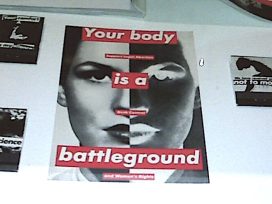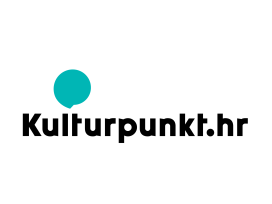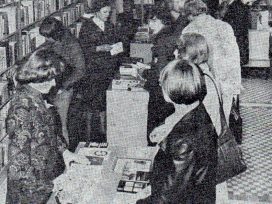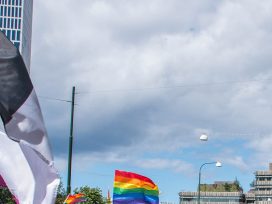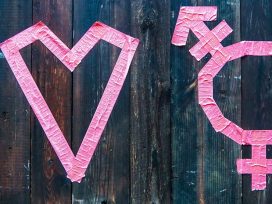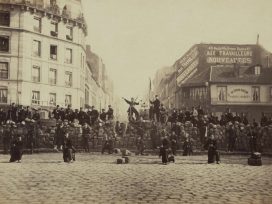Kurziv is a non-profit cultural organization based in Zagreb, Croatia. It is the umbrella organization housing the community media organization Kulturpunkt. While Kulturpunkt focuses on publishing, Kurziv fosters cultural awareness and social development through the arts locally in Croatia.
Priyanka Hutschenreiter (PH): What is Kurziv’s history? What is your main focus?
Ivana Pejić (IP): Kurziv is a nonprofit organization from Zagreb, Croatia. It was born out of the media outlet Kulturpunkt. Kulturpunkt is a nonprofit media outlet that started in 2005 and Kurziv is the organization that leads it now, but it was established only in 2009. So the media outlet was alive and kicking for four years before Kurziv was founded. It was established by the Network of Independent Cultural Organizations, as we call them, in Croatia. They realized that the efforts that they are doing, many programs and cultural events, establishing new spaces and so on, are not recognized by the larger mainstream media. So they decided to establish their own media outlet. When they realized that the media outlet has outgrown the capabilities of the network, they established a new organization called Kurziv, which is the publisher of Kulturpunkt, and from there it all started to grow in different directions, but the seed has always been the media outlet.
They then realized that the archives of the independent cultural scene was not institutionalized, that it was happening very spontaneously and it didn’t have the ability to record, document and archive everything that they were doing. They decided this was important. So one of the main projects that we do outside of media work is archiving the activities and development of the independent cultural scene. We do it through deep interviews online, but we also share a physical space together with another organization. It is a space where institutions and organizers can bring their pamphlets, posters, leaflets, anything like that. It’s a scene that is now 30 years old and it wouldn’t have any reminders of its past without these people that are trying to remember it as it is happening and contextualize it.
We also started noticing that the spaces for critique–art critique, but also social critique–are getting smaller and smaller. So the organization established a program called Critica: yesterday, today, tomorrow, which tried to connect local organizations with others in the region, with other countries, with their critics and the scene in their cities and countries to talk about different topics that are relevant. That was one program that developed in various formats through the years, but it is a discursive and off-line program. We organize public events, talks, discussions, and so on, and we publish around these topics. Occasionally we publish physical books and ebooks and, of course, the media outlet that is the centre of our existence.
Another project or program that is very important to us, that also emerged from the media outlet, is a journalism school. We run it every year for four or five months. Every year we have 10 to 15 new young aspiring journalists coming through our education program, and then from there we start collaborating. They become our authors, participants, or journalists.
And this is how most of us ended up at Kurziv. In our current team, our president, Matija Mrakovcic, myself and our other colleagues all started in the journalism school and then, in various ways, stayed in the organization. Of course, a lot of people from the journalism school end up in other organizations in the cultural and media fields in Zagreb.
Kulturpunkt is celebrating its 20th anniversary this year. Hence the whole year is a celebration for us. We have decided to use this opportunity to go out of Zagreb, the capital, to go to different cities to find our ambassadors there and to reconnect with the audiences there also. We are a traveling circus. It is very refreshing and inspiring to go out of the centre and find new interesting stories and people. They are giving us a new-found energy. It is increasingly rare in the media field to sustain as an nonprofit media outlet for this long, and especially for a media outlet that is specialized in culture. But we managed to build our audience and still find ways to sustain and to reinvent. We are also training a new generation of young people in our journalism school. So we always have new perspectives and I think that is one of the reasons that we have managed to sustain this long.
PH: I’m curious about the international projects of which you’re a part. In what ways do they support the really important local work that you’re doing?
IP: We took part in Erasmus projects in the past, which were really important for bringing our young and emerging voices into the European context in the sense that they get a chance to find their future callings through this program. We also ran a project concerning media activism of young people across Europe who were connected through the shared topic of the right to the city. We started this project in 2009, which was quite an important time for talking about cities and our right to the city in terms of culture, but also in terms of the right to fresh air and good housing. So there were different topics that were connected in this project, and it encouraged participants to think about how culture is interconnected with practical everyday realities like housing and sanitation.
One other project that we are very proud of, for which we are trying to reapply again, is a project that we called Repair. It is about trying to find the ways in which culture can help repair our societies after the multiple crises that we faced in the last few years. We did this by connecting interdisciplinary groups of people, from microbiologists to cultural workers, who tried to figure out different ways in which culture and art can help repair society. These projects are experimental and very open, open to making mistakes. We are trying to embrace mistakes and figure out what we can do with them.
PH: How do Kurziv and Kulturpunkt sustain themselves financially?
IP: Most of our funding comes from public funding: from the European Union, national, and local funds. But as we all know, it’s getting tougher and tougher each year. Due to the competition, we are at this moment looking to the future with a bit of fear, because it seems like the EU budget is also getting smaller for our kind of work, and we are going towards militarization and different priorities at this moment. But we deeply believe that culture can have a repairing effect on societies. We won’t give up on demanding public funding for our work, but we are also realistic in the sense that we know that we have to figure out how to, at least in some ways, try to be more sustainable. We do not want to depend on shrinking funding and shift our priorities completely according to current hot topics. We are trying not to do that and this is why we also need to have our own way of building sustainable perspectives in the future.
One thing that we emphasize in the EU project Come Together is reconnecting with our audience, trying to establish those connections that were lost or obscured because of how much we lean on social networks and their algorithms. These started to work against us at one point and we realized that our connections with our audiences were not as they used to be. We spent the last two years trying to reconnect in some way, because we realized that we still have strong support from our audience and that we can rely on our audience. Now we are trying to put more effort into getting their continuous support, but to do that we need to be more close to our audience so we can hear what they expect from us: what are their needs and how can we respond to them? This is one of the difficulties of being an online media platform: how do we reconnect or rebuild these connections in physical spaces? So we are combining our other projects or programs that are in physical spaces with our media presence. We want to be physically in contact with people in order to rebuild those connections. This is our priority at this moment.
This interview was commissioned as part of Come Together, a project leveraging existing wisdom from community media organizations in six different countries to foster innovative approaches in global independent journalism.
